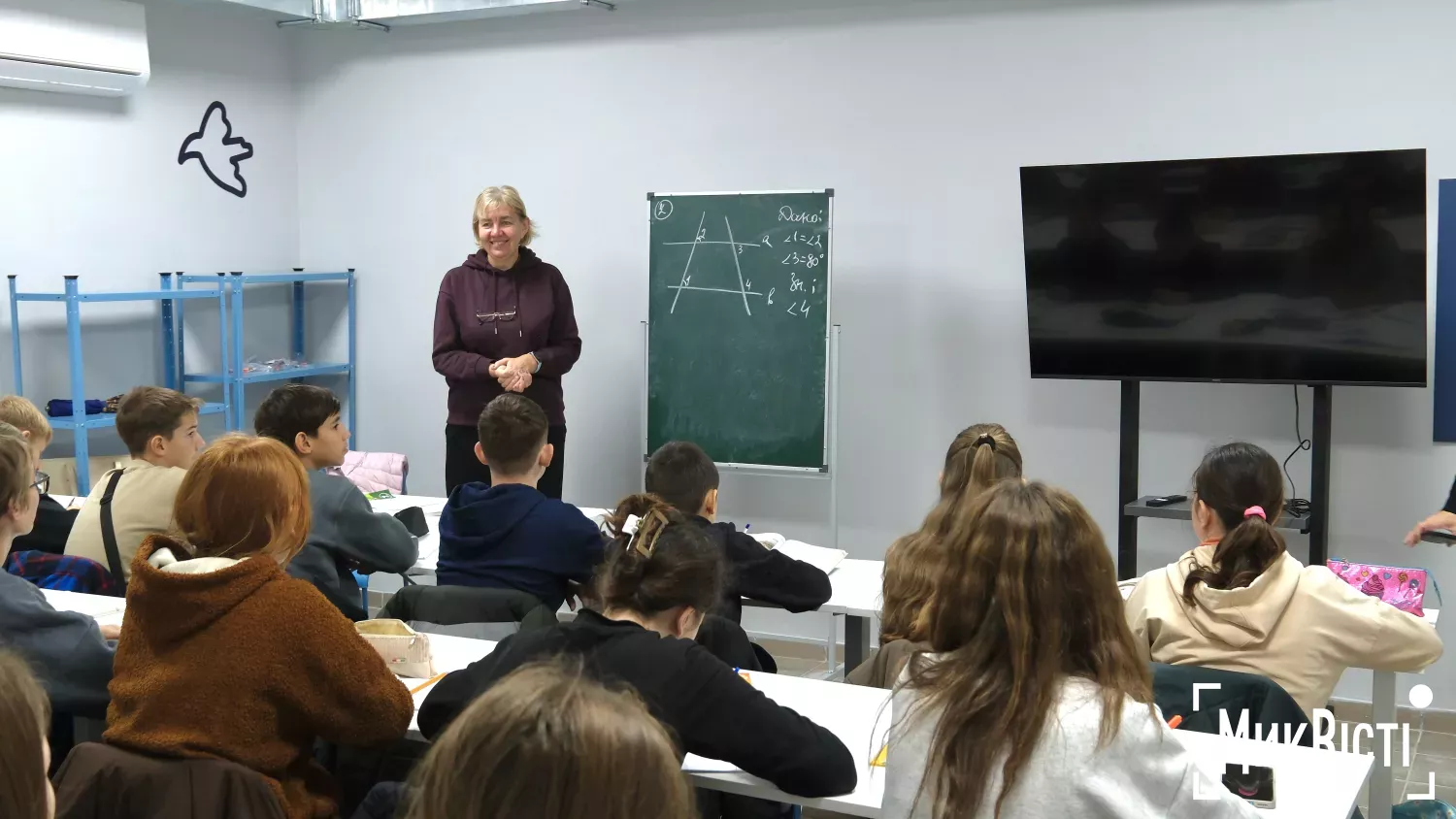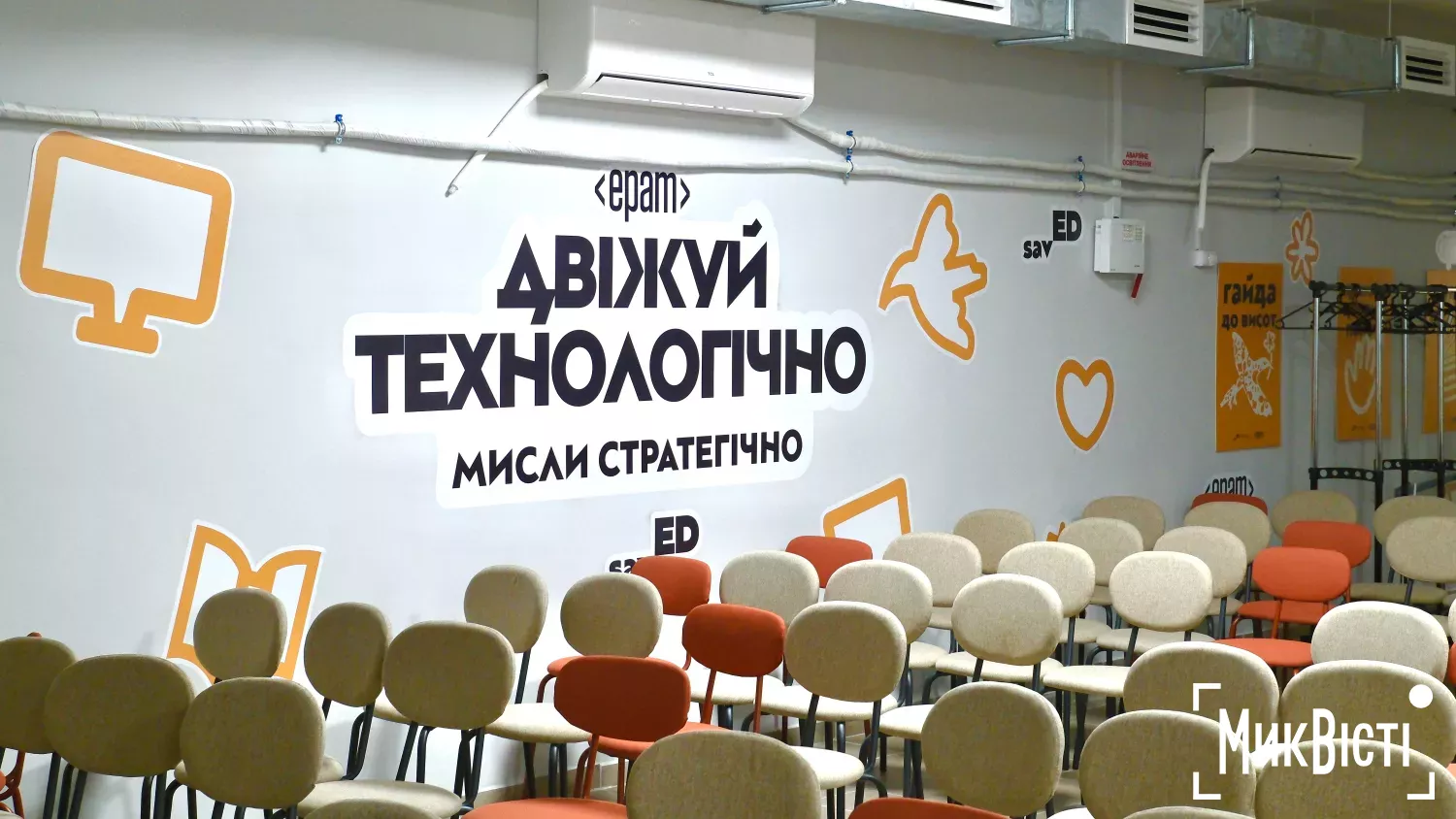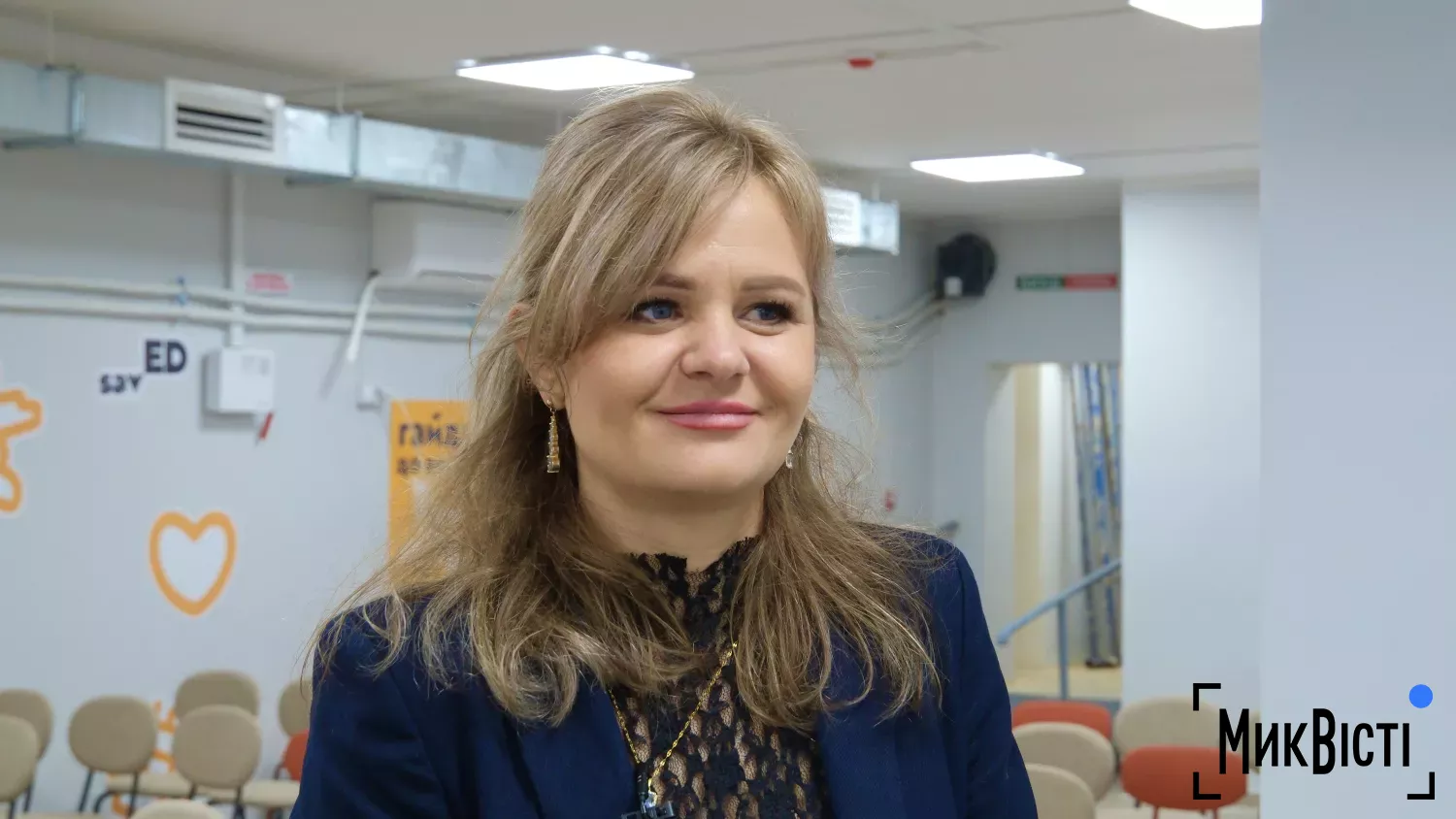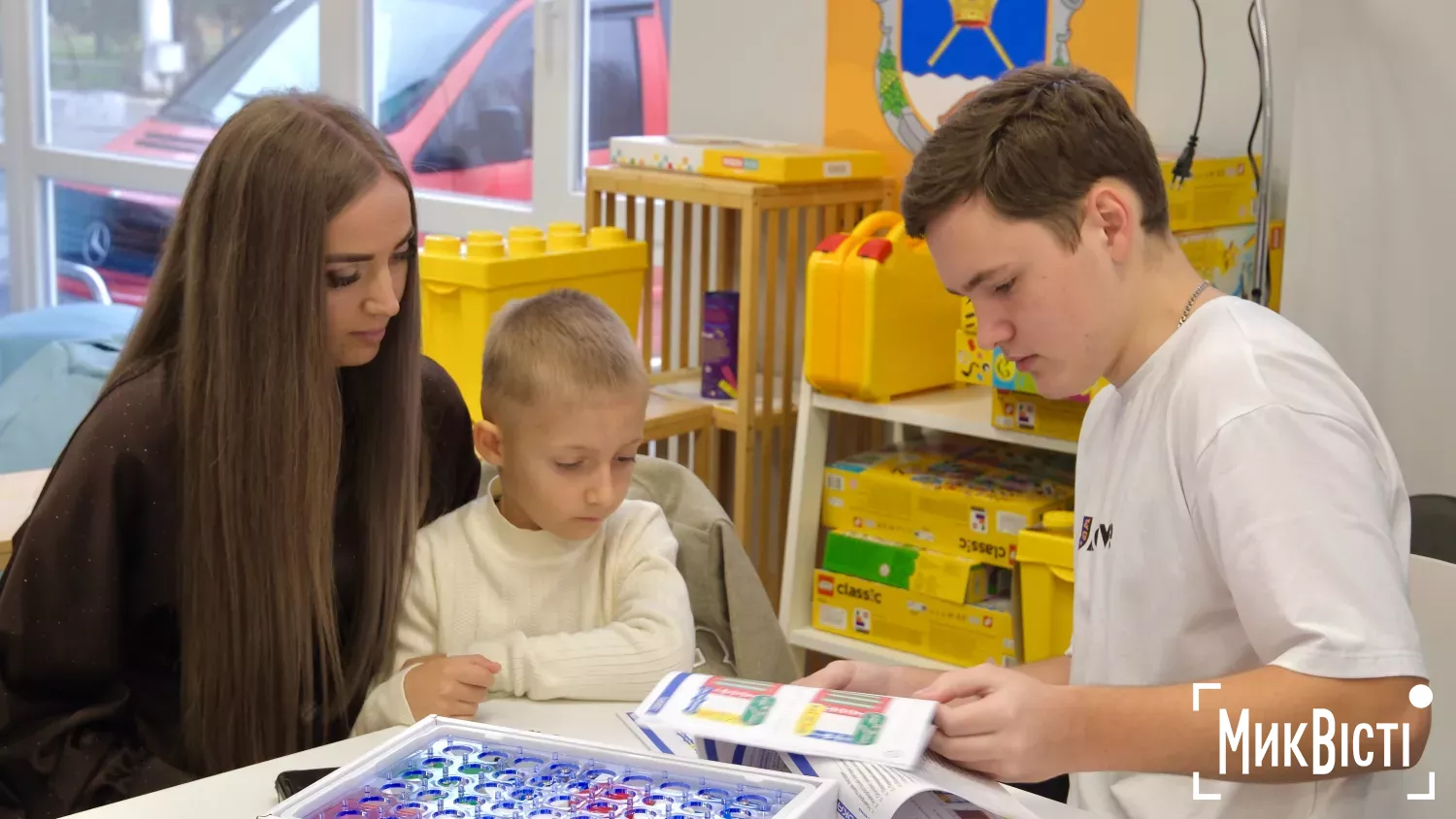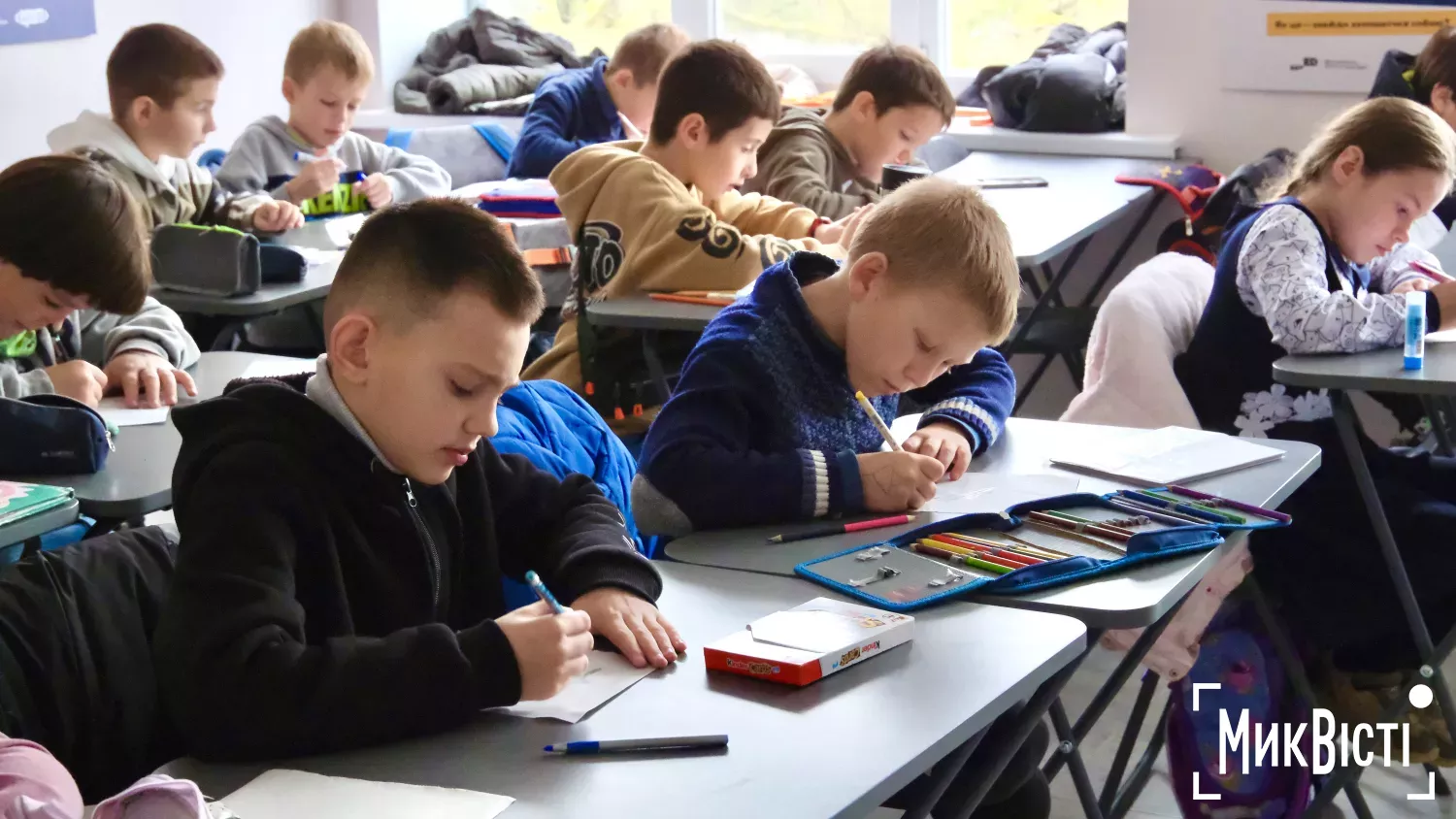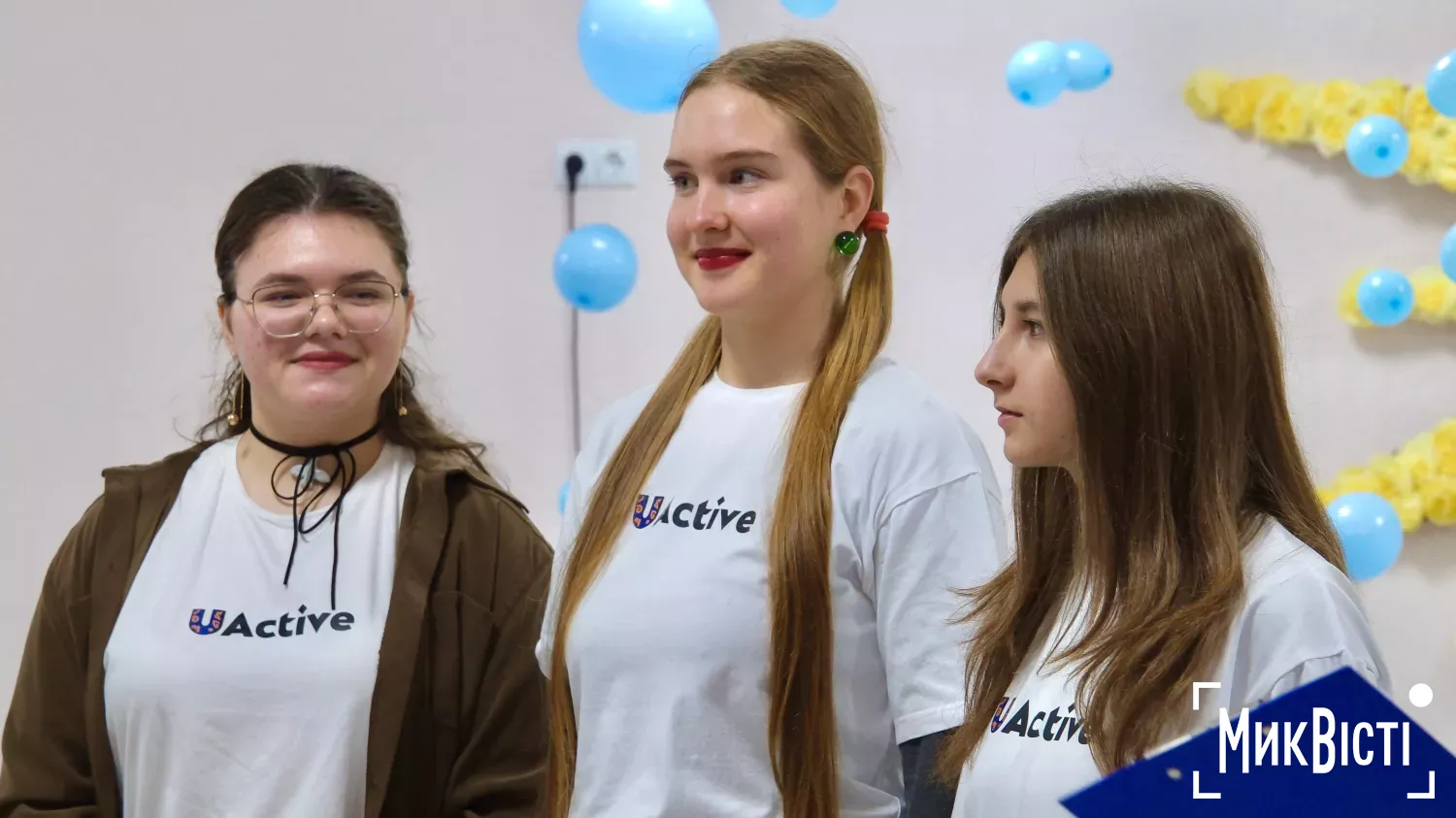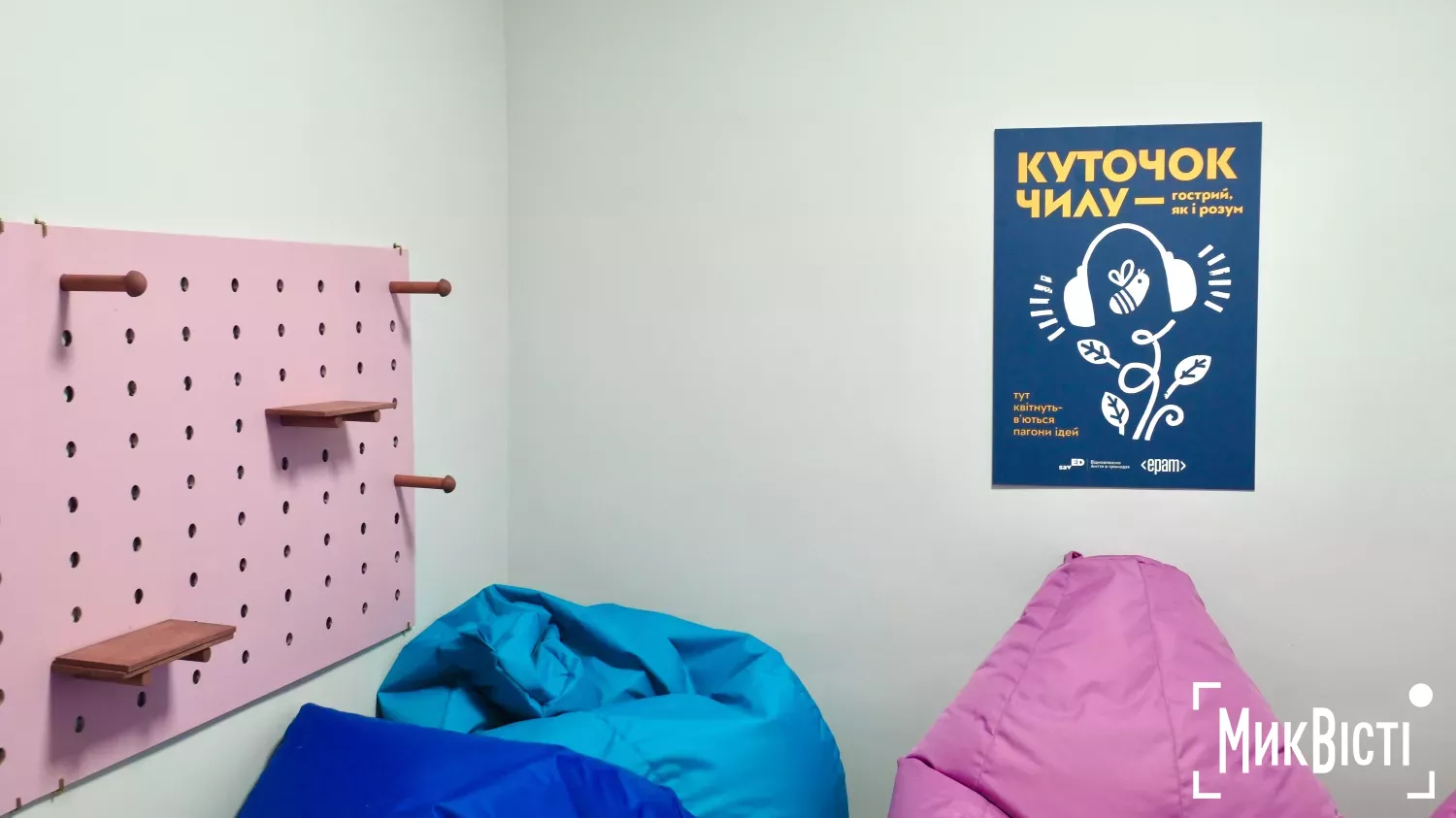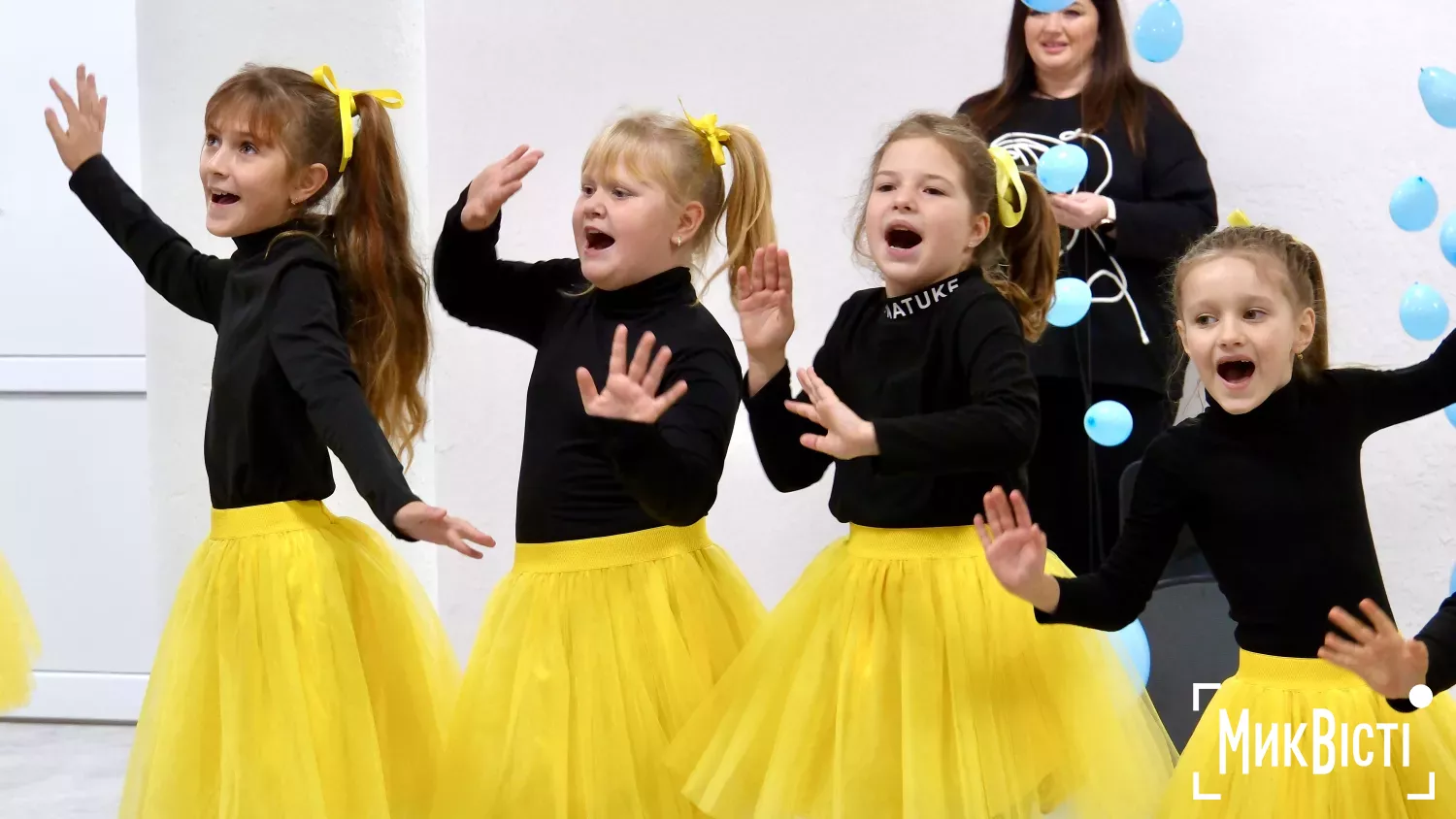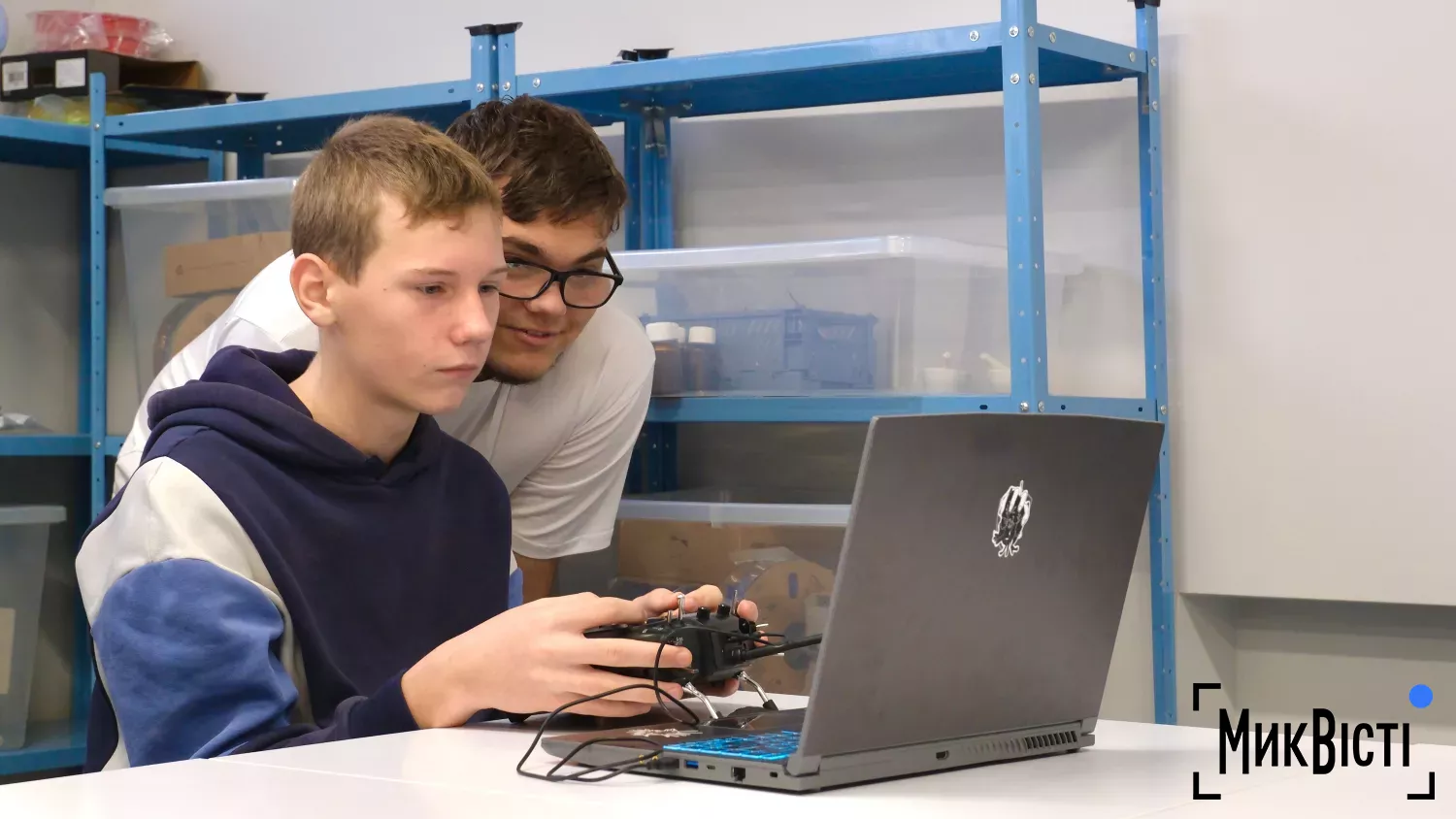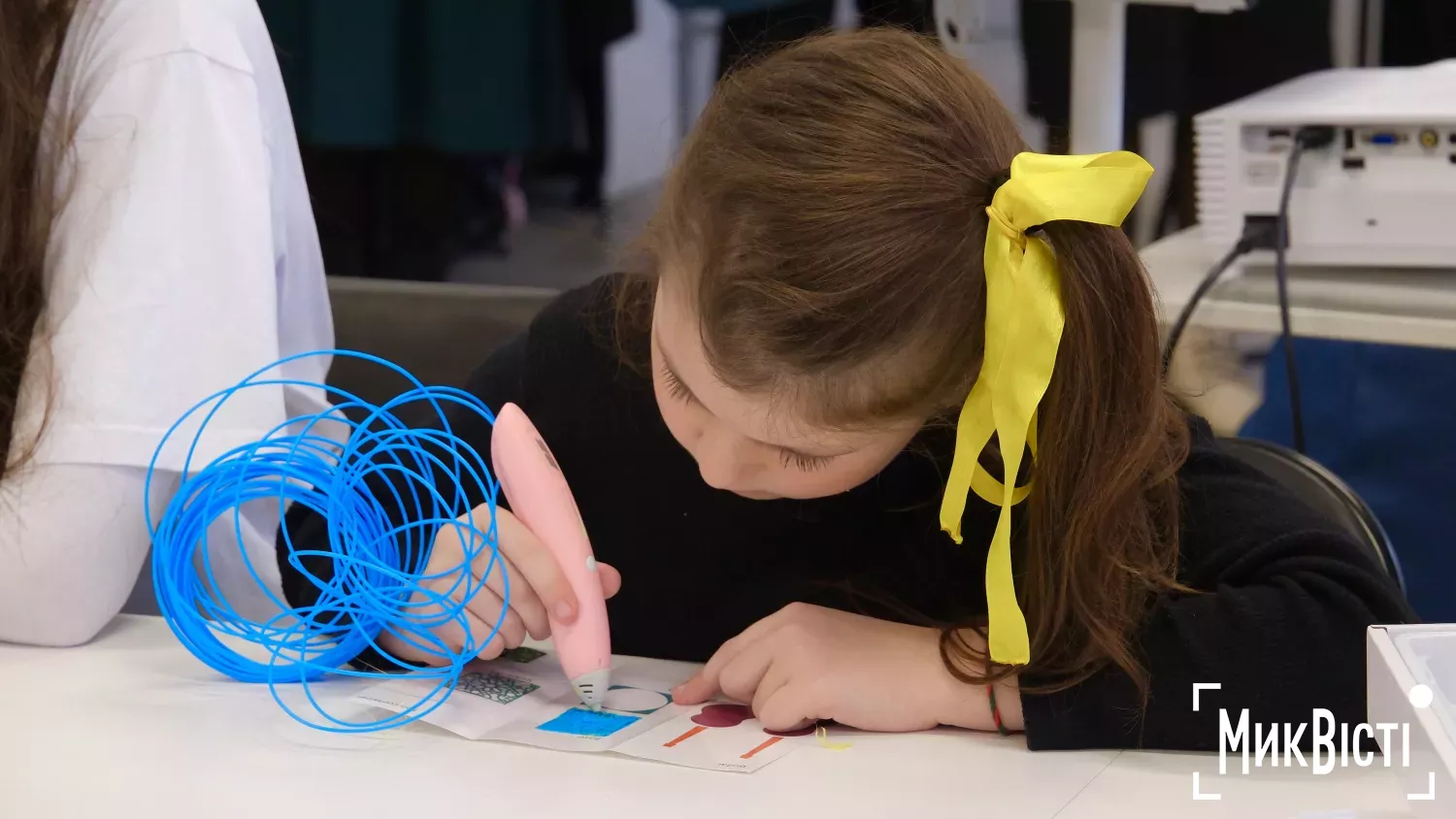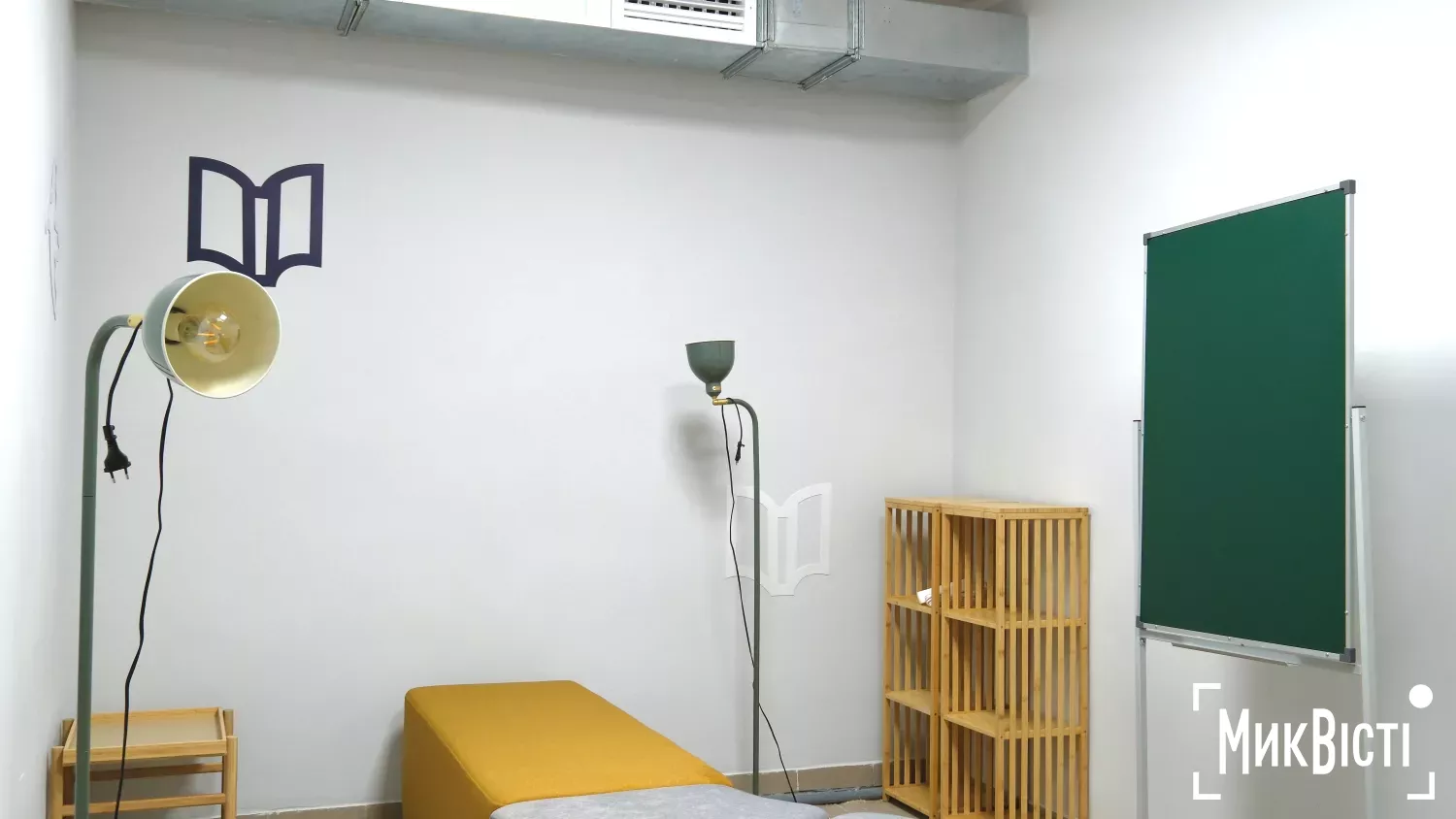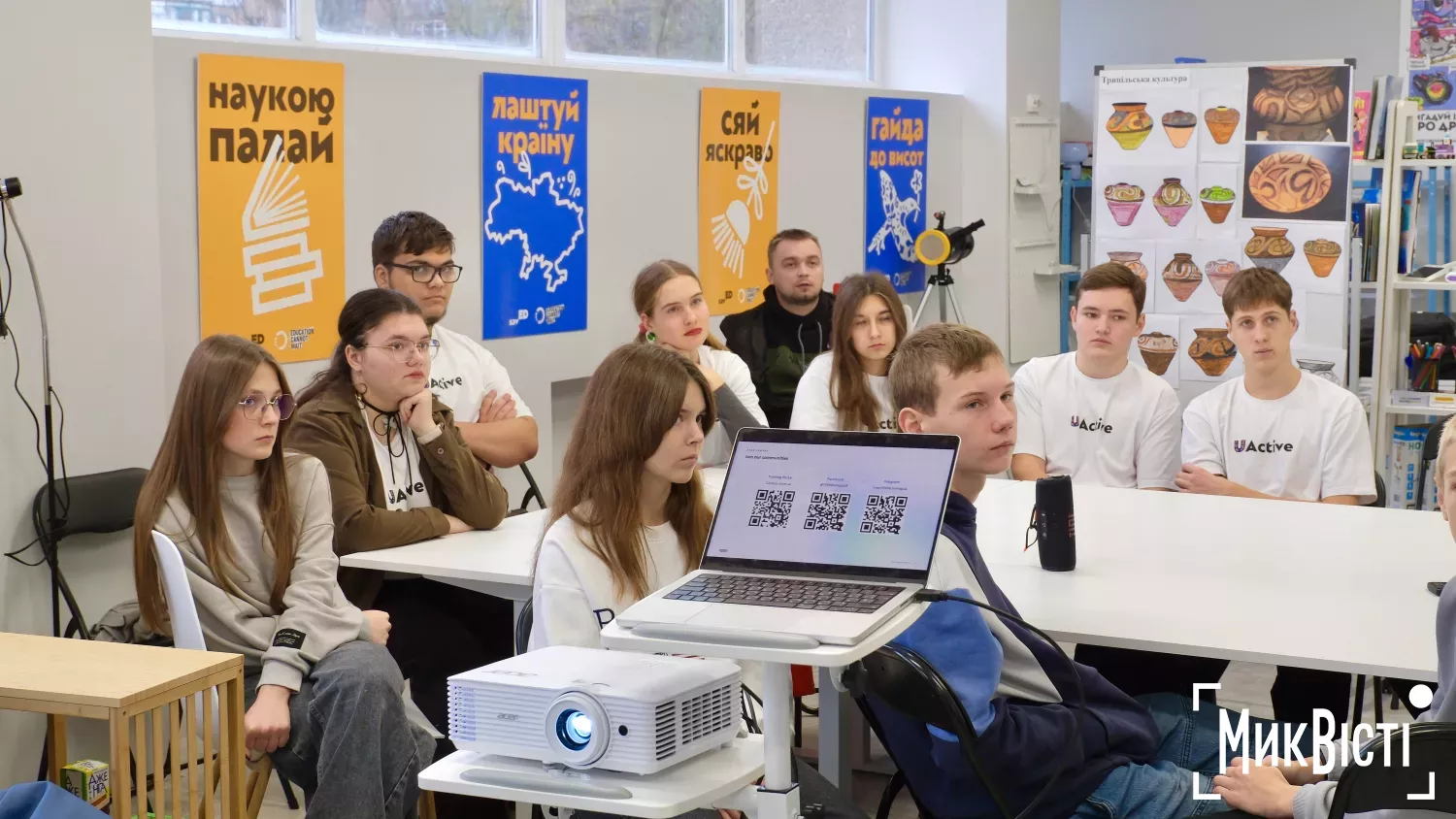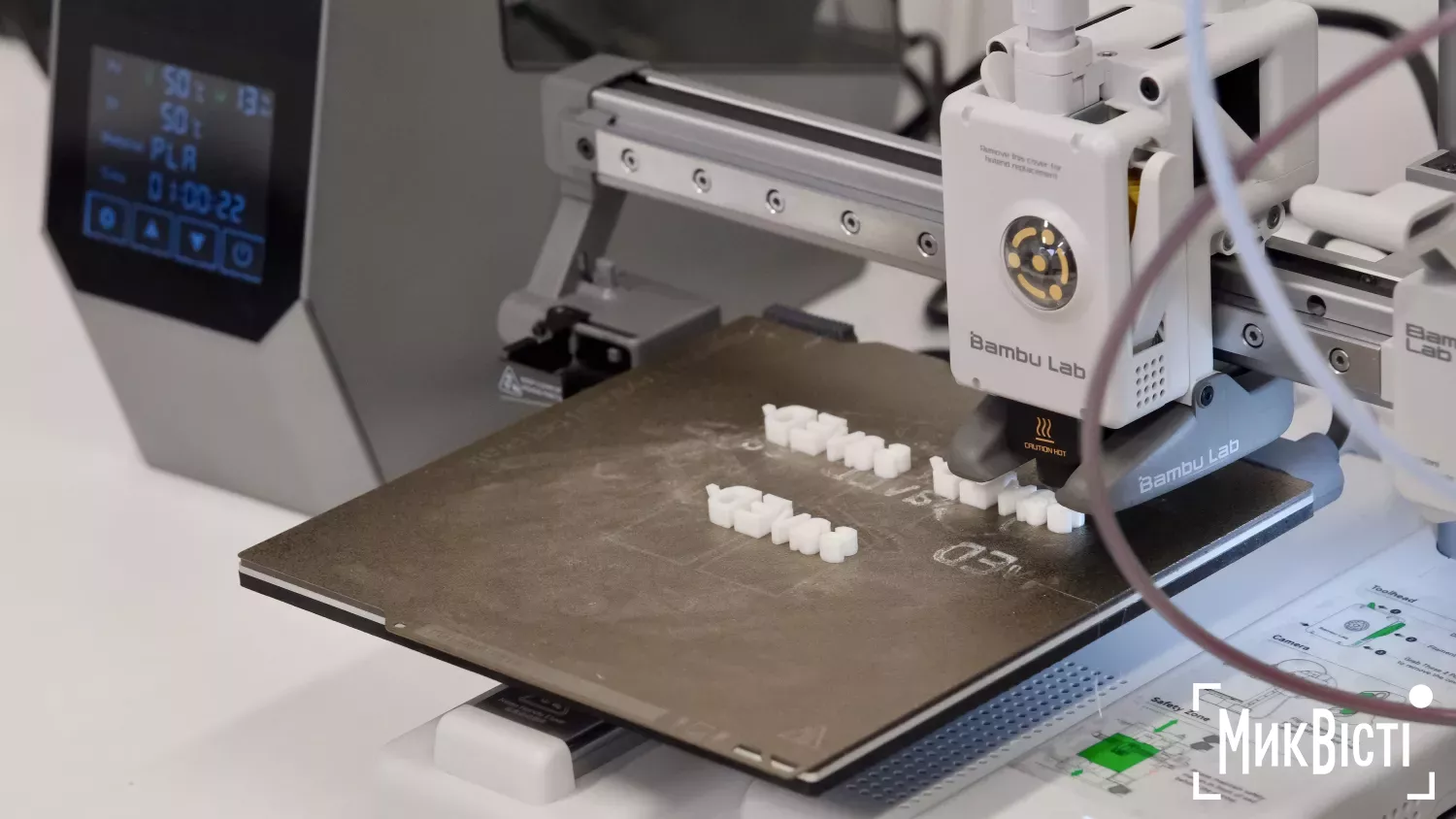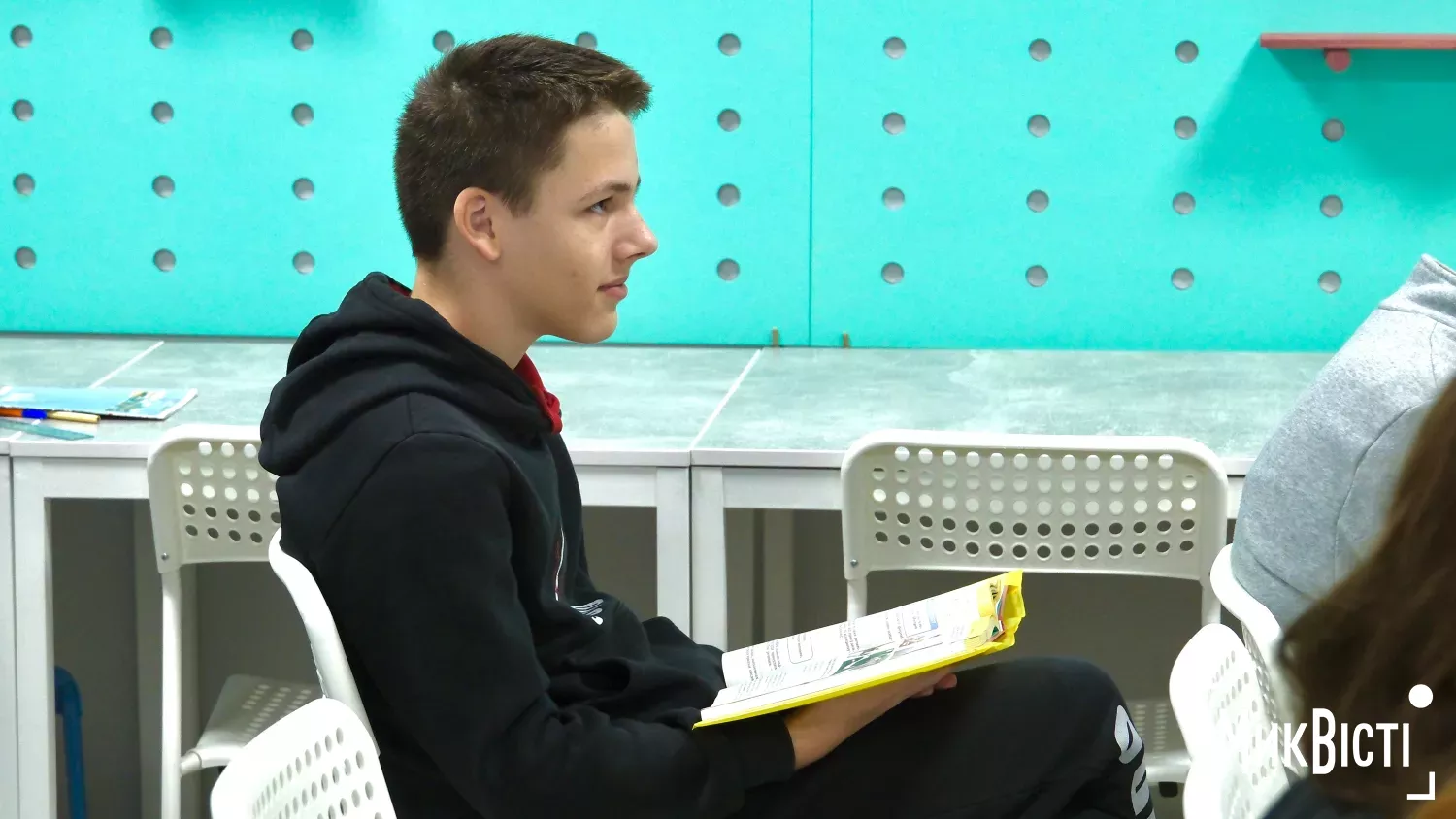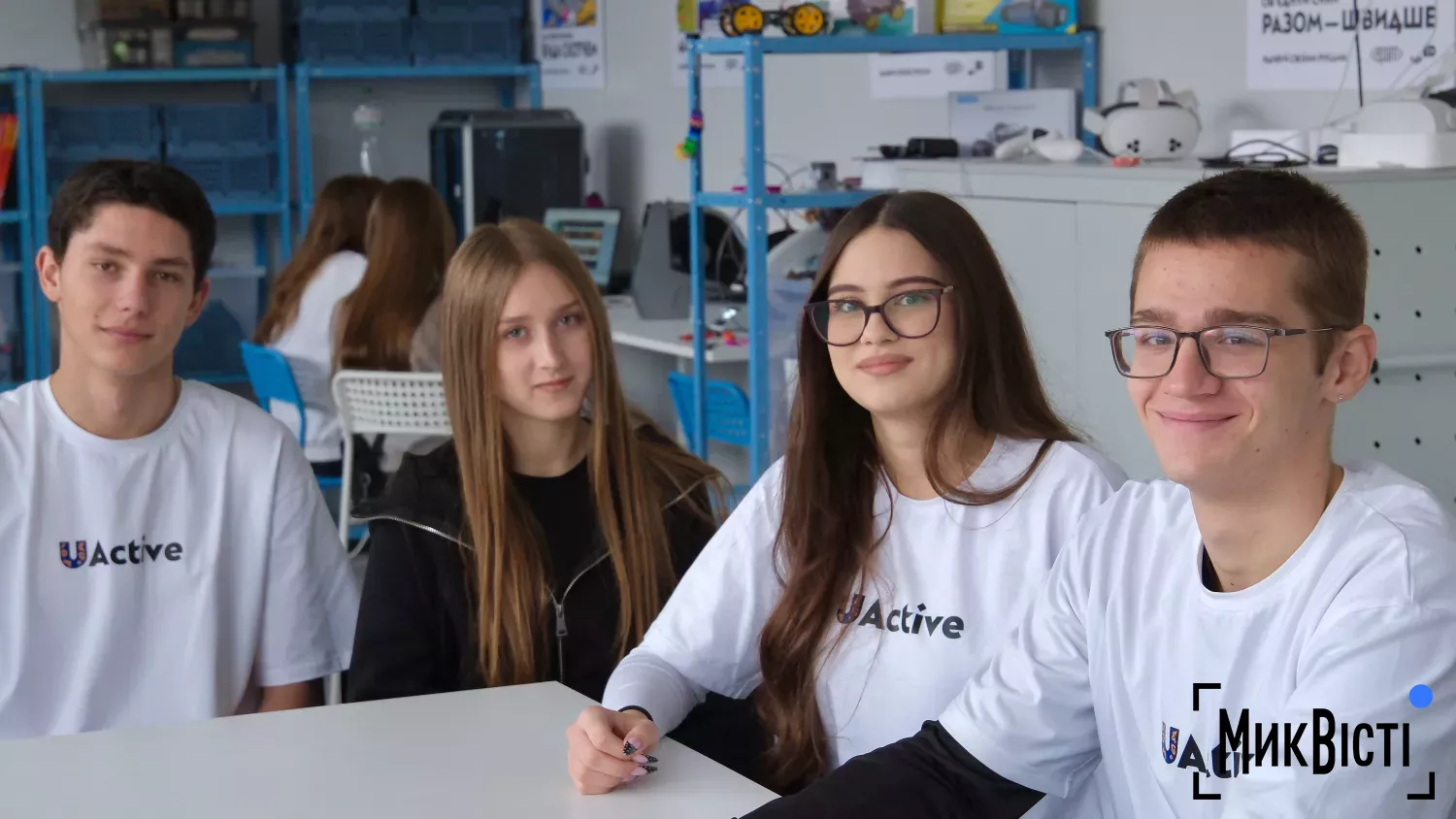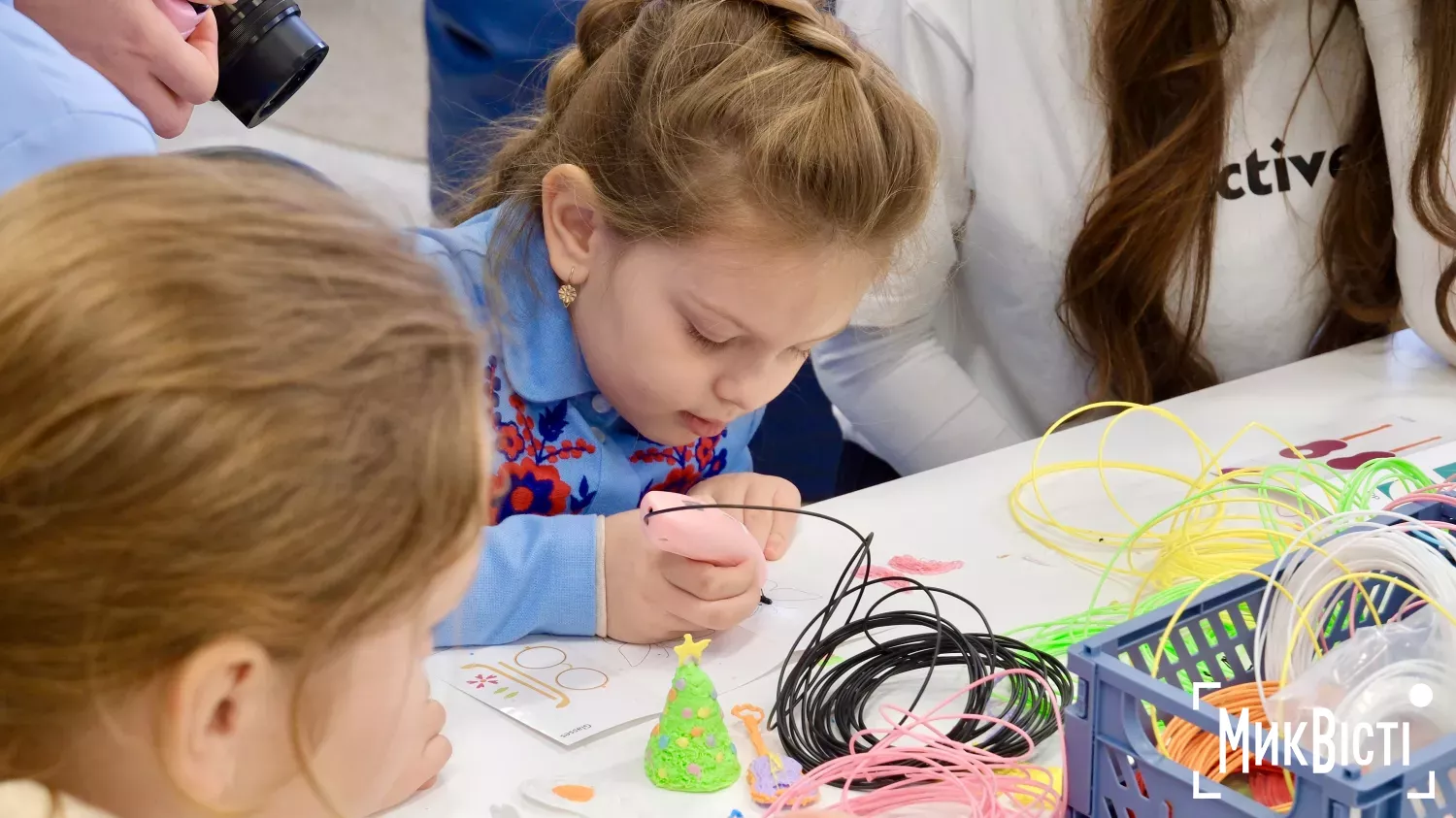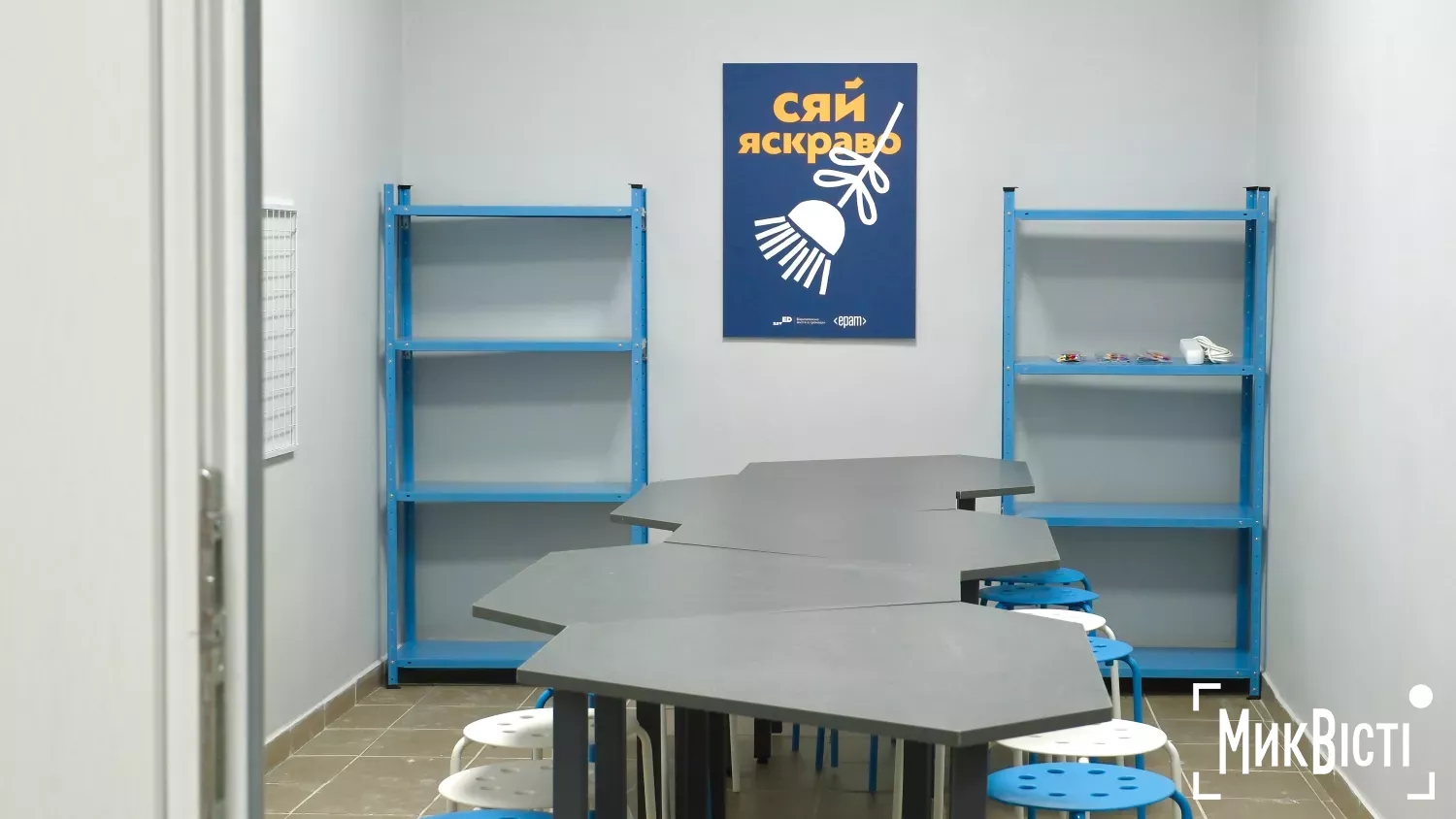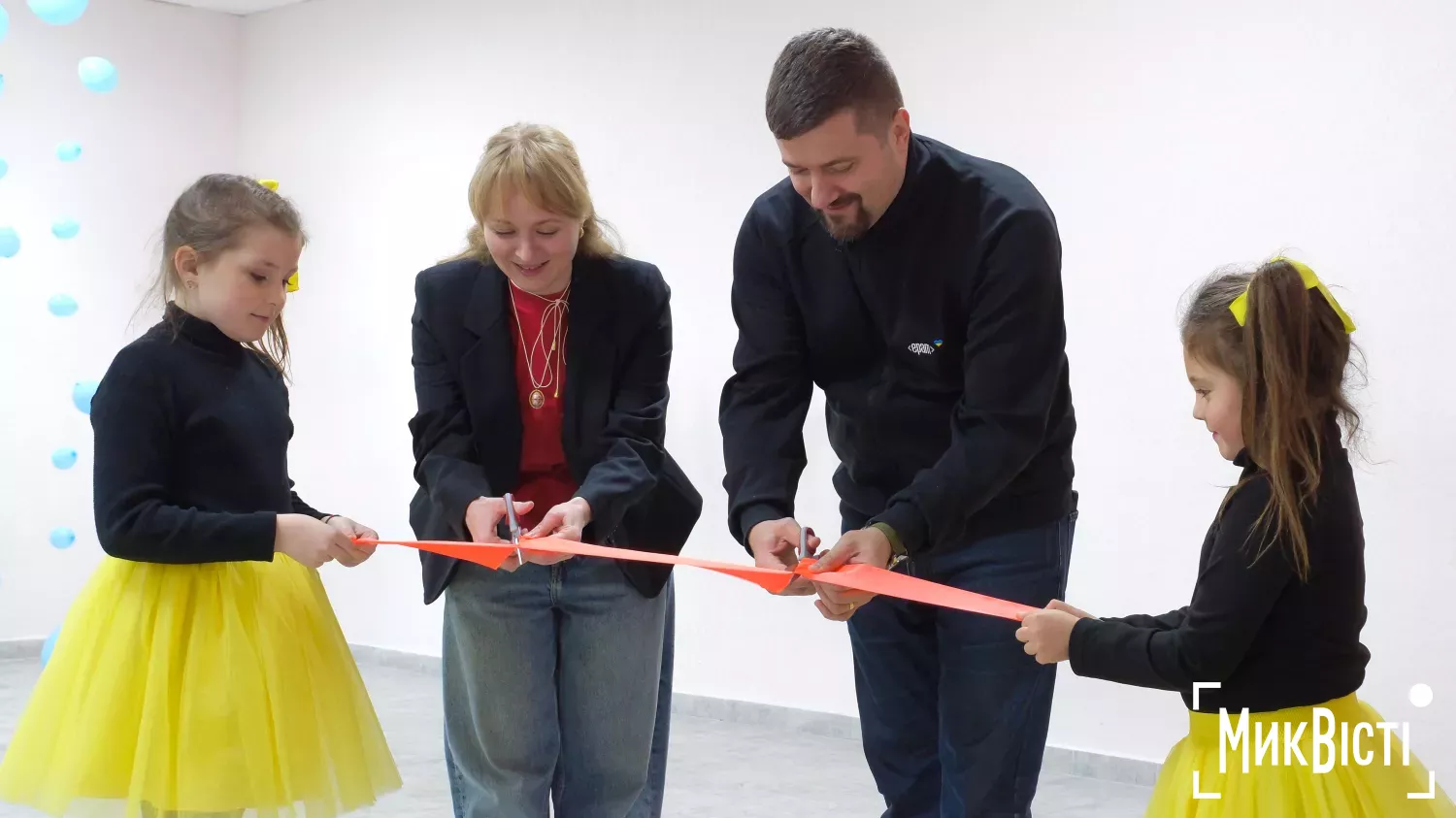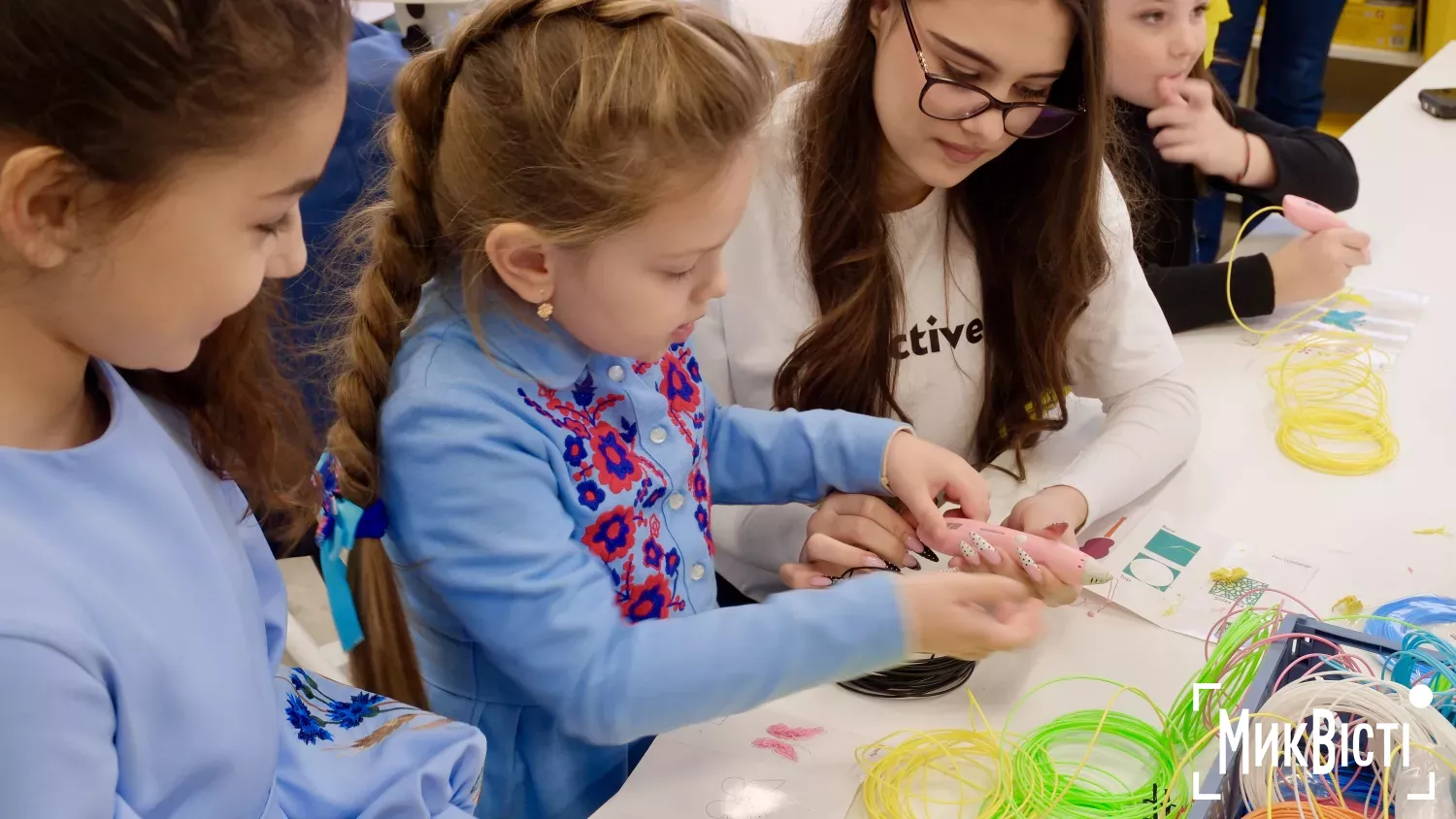Temporary school with shelter and educational centre opened in a house of culture in Mykolaiv region for over ₴3 million
- News of Mykolaiv
-
•
-

- Darina Melnychuk
-
•
-
12:40, 21 November, 2025
A temporary school with a shelter and an educational centre for more than three hundred schoolchildren has been set up in the village of Olshanske in the Mykolaiv region on the basis of the local community centre.
This was reported by a correspondent of NikVesti.
There are five classrooms on the second floor of the community centre. During air raid alerts, students and teachers go down to the shelter, where lessons continue in equipped classrooms. The shelter has two classrooms, as well as recreation areas: a chill-out corner, a reading room, a space for communication and a conference room. There are two toilets, including one for children with special educational needs and people with disabilities.
On the ground floor, there is an educational centre «Vulyk» for extracurricular activities. Students can attend a STEM research club. The space has equipment for 3D modelling, robotics, biotechnology, and chemical projects.
The renovation of the premises and the arrangement of study areas in the cultural centre was helped by the savED charity foundation together with the IT company ERAM. The total cost of the work was over 3 million hryvnias. Part of the work was funded by the local community. In the future, the local authorities plan to complete the repairs and add several more classrooms to the temporary school.
According to Iryna Budykina, director of the Olshanske lyceum, since 2022, schoolchildren have been studying remotely due to the security situation and the lack of shelter in the lyceum building. Now, there are already three lyceums in the community operating in a mixed format. She noted that at first she had doubts about studying in the premises of the community centre, but they disappeared after the renovation work was completed and the first lessons were held in the new classrooms.
«When we first came here last year at this time and chose classes, I was probably one of the first to say: «Yes, let's go». We identified three classes here and four more upstairs. Then, you know, the euphoria wore off, and as a teacher, I began to realise all the subtleties: this is not a school building, not a fenced area, there are nuances, and you need to constantly monitor the children. I truly believed that everything would work out when I saw the completion of the work, when they started bringing in furniture, when children came to help. And the moment of reality came when the students came into the classroom and said: «Wow, it's a classroom! Can we come tomorrow? Can we come here again?», recalls Iryna Budykina.
She adds that during the time of distance learning, the school recorded significant educational losses. Children lost motivation, many did not attend classes, and parents could not control the process because of their work.
«We saw enormous educational losses. When we summed up the annual and semester results, it turned out that the quality of education had dropped by 0.08. This is because children are constantly at home, behind closed screens, and, sorry, but they have even forgotten how to cheat. They simply do not care, because no one controls them — their parents are always at work. Their task is to provide the child with basic needs, and this is understandable. So children are often left alone. Because of this, they often don't go to school because there is no control,» explains the principal.
Lyceum teachers say that socialisation, live communication and the opportunity to see the teacher are important for children. They emphasise that distance learning cannot fully replace classroom lessons and makes it much more difficult to learn and develop skills.
Svitlana Zelinska, a music teacher, says that the children are happy to be back at school because they can sing, do rhythmic exercises and communicate in face-to-face classes.
«The children love going to school. In distance learning, we can't do music in full — singing, rhythmic exercises, joint auditions are only available in the classroom. Socialisation is also extremely important, as children communicate and express themselves at school. Yes, after the distance learning, they need to be organised again, but they are happy to sing and quickly get involved,» says the teacher.
The mother of a first-grader, Dariia Povarova, who also teaches biology and music at the lyceum, says that the opening of the school has significantly improved the learning process. As a mother, she sees how important it is for children to learn in a comfortable space, and as a teacher, she appreciates the quality of the organisation and materials.
«We went to the first grade after the online kindergarten and really hoped that we would be able to return to regular education. The opening of this institution made a strong impression: as a mother, I see how important it is for a child to learn in a comfortable space where they are motivated and supported. It was difficult to teach online — a teacher cannot teach many basic things remotely, children need live communication. As a teacher, I appreciate the thoughtfulness of the organisation and the quality of the materials: it feels like the institution was created with love for children and respect for teachers,» says Daria Povarova.
Dmytro Yakymets, Head of Corporate Social Responsibility at EPAM Ukraine, notes that the project in Olshanske is the first for the company in Mykolaiv region. According to him, EPAM supports both the creation of shelters in schools and the development of educational programmes for children throughout Ukraine.
«This is our first project in Mykolaiv region, but in general, our activities cover the whole of Ukraine. We support both the capital costs of creating shelters and the development of education. We have many online projects in which more than 5,000 children and teenagers have already taken part in free IT programmes. In cooperation with the savED Foundation, we have helped to set up about six shelters in Kryvyi Rih, one in Kharkiv region, and now this educational space in Olshanske,» says Dmytro Yakymets.
Oleksandra Shevchenko, Head of Communications at savED, says that in Mykolaiv region, the foundation has already created comprehensive educational spaces in several communities. In particular, in Pervomaiske and Chervona Dolyna, even an outpatient clinic and the premises of the local House of Culture were converted into full-fledged educational spaces.
«Each community requires an individual solution, as conditions are different everywhere. In this case, we managed to create a modern space for about 300 children — with a safe shelter and the opportunity to study offline or in a mixed format. Thanks to the equipped classrooms, children can attend school in two shifts, as well as participate in extracurricular activities in the «Vulyk» and other activities offered by the community,» says Oleksandra Shevchenko.
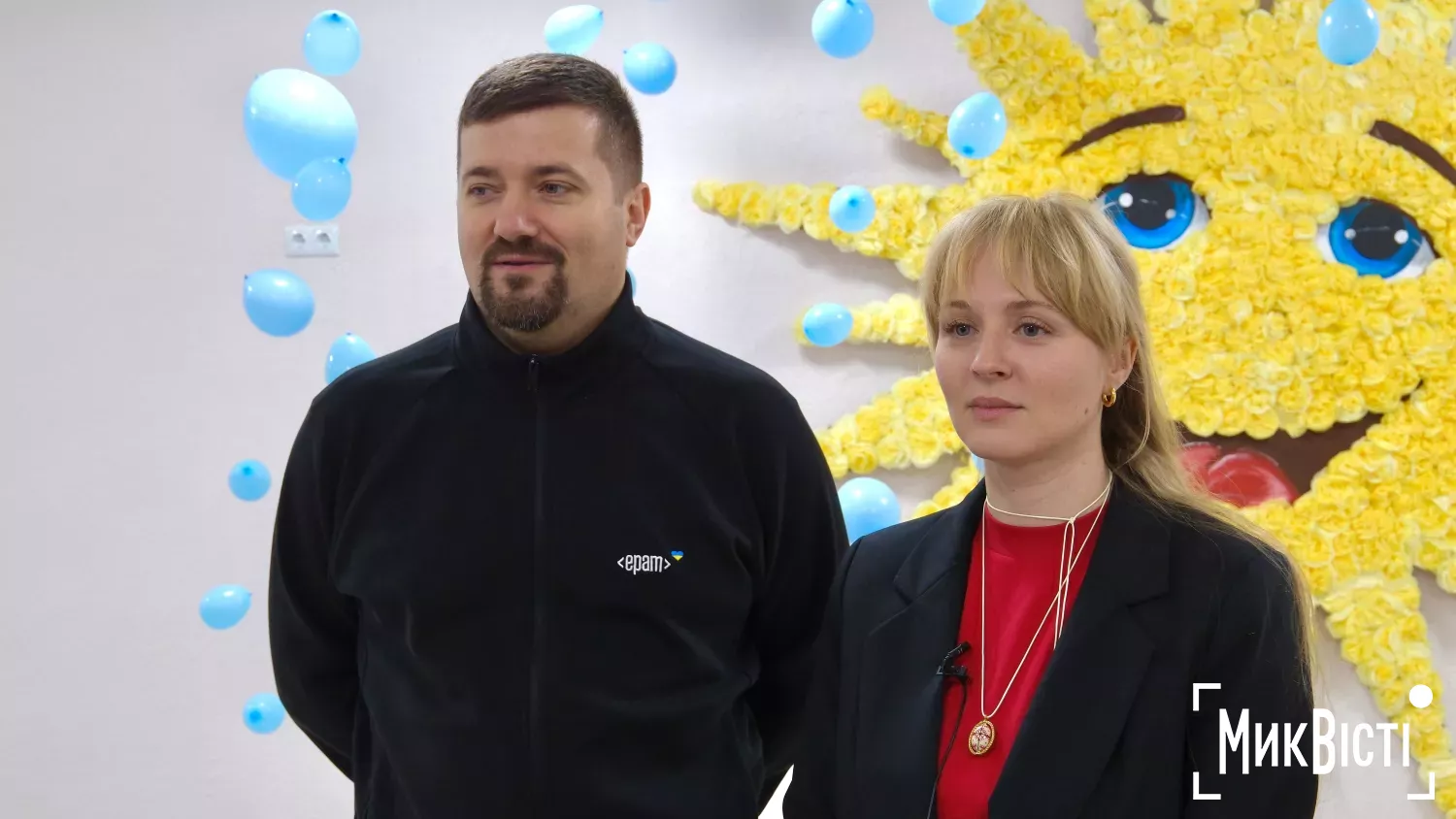 Dmytro Yakymets, Head of Corporate Social Responsibility at EPAM Ukraine, and Oleksandra Shevchenko, Head of Communications at savED. Photo: NikVesti
Dmytro Yakymets, Head of Corporate Social Responsibility at EPAM Ukraine, and Oleksandra Shevchenko, Head of Communications at savED. Photo: NikVestiIn total, the foundation has already set up more than 100 «Vulyks» in Ukraine, and the network continues to grow. In Mykolaiv region, according to representatives of the savED Foundation, there are about 25 such educational spaces.
Photo report
As a reminder, as of the end of October, 357 vacancies for teachers were open in Mykolaiv region, but there is no one to fill them. Most of all, there is a shortage of teachers of mathematics, English, physics and chemistry.
This material was produced within the REACH – Media Partnerships for Accountability and Trust project, implemented by International Media Support (IMS) and supported by the Ministry of Foreign Affairs of Denmark. The content reflects the views of the authors and not necessarily those of the Danish government. Denmark’s support strengthens civil society and independent media in Ukraine, including in Mykolaiv.
Чому ви читаєте «МикВісті»? Яка наша діяльність найбільш важлива для вас? Та чи хотіли б ви стати частиною спільноти читачів? Пройдіть опитування, це анонімно і займе 5 хвилин вашого часу


